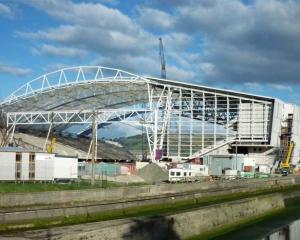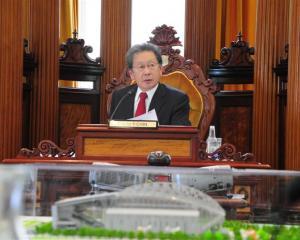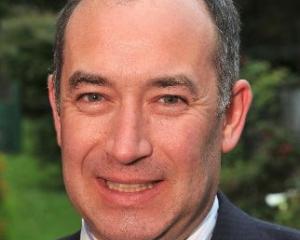Last Sunday, a public meeting at the Dunedin Town Hall heard a wide range of arguments from a line-up of speakers on why the city did not need a new stadium.
Following the meeting, the Otago Daily Times put eight questions to Mayor Peter Chin, with the intention of publishing his answers today.
Mr Chin said he was unable to respond to what he described as "important and complex" issues until early next week.
In the meantime, a Dunedin building industry figure with an interest in the subject has given Dunedin City Council reporter David Loughrey his views.
Dunedin building contractor Russell Lund has hit back at claims the guaranteed maximum price (GMP) contract being negotiated for the city's stadium project is flawed, and that the construction will not benefit Otago contractors.
Mr Lund, the owner of building company Lund South Ltd, has also dismissed claims the land at the Awatea St site is unsuitable for the piling necessary for the stadium.
Mr Lund said his company built coolstores on the site for the Otago Dairy Co-operative, later taken over by Fonterra, and the deepest piles needed for a building that stored large quantities of dairy products were 18m deep, and the rest 9m deep.
He understood main contractor Hawkins Construction had accepted the risk of price increases for the foundation work.
Mr Lund attended last Sunday's meeting, and contacted the Otago Daily Times to take issue with some of the arguments put forward by speakers.
Dr Robert Hamlin told the meeting Hawkins Construction was not an insurance company, and would not be able to deal with what he claimed would be escalating costs.
Businessman Alistair Broad said a GMP contract was a fixed price agreement, and increases in commodities such as steel, delays due to the weather, and the foundations, were areas where the price could escalate.
A Dunedin building industry insider, who declined to be named, has contacted the Otago Daily Times to express his concerns much of the work would go to contractors outside Otago.
But Mr Lund, whose company has tendered for structural concrete work on the project with Amalgamated Builders, said the risk in such contracts was "completely with the contractor" and the sub-contractors, who worked under the same conditions.
Dr Hamlin had said the contractor could give a fixed price, then go broke.
"That's true in theory," Mr Lund said.
But Hawkins Construction was a large company, and had priced the job three times.
"The only way the cost can increase is if the scope is changed."
There was "no way in the world" the price would increase as some had said.
"He [Dr Hamlin] is saying we're all incompetent, and we don't know what we're doing.
"That's desperate reasoning."
Mr Lund said he understood there were some contracts for which Otago companies would struggle to compete with larger firms from outside the city.
But there were local companies that would benefit, and were waiting for the contract to be approved by the Dunedin City Council.
"Wherever they can, they have tried to involve locals."
Mr Lund also challenged speakers at the meeting who said the contract could not be priced when the design of the stadium was not complete.
That was something that was done regularly in the construction industry, including jobs he had done in Queenstown, and involved pricing an element of risk into the contract.
Carisbrook Stadium Trust chairman Malcolm Farry late yesterday said while no contracts had been signed yet, one of the trust's major objectives had been to get as much work as possible for local companies.






